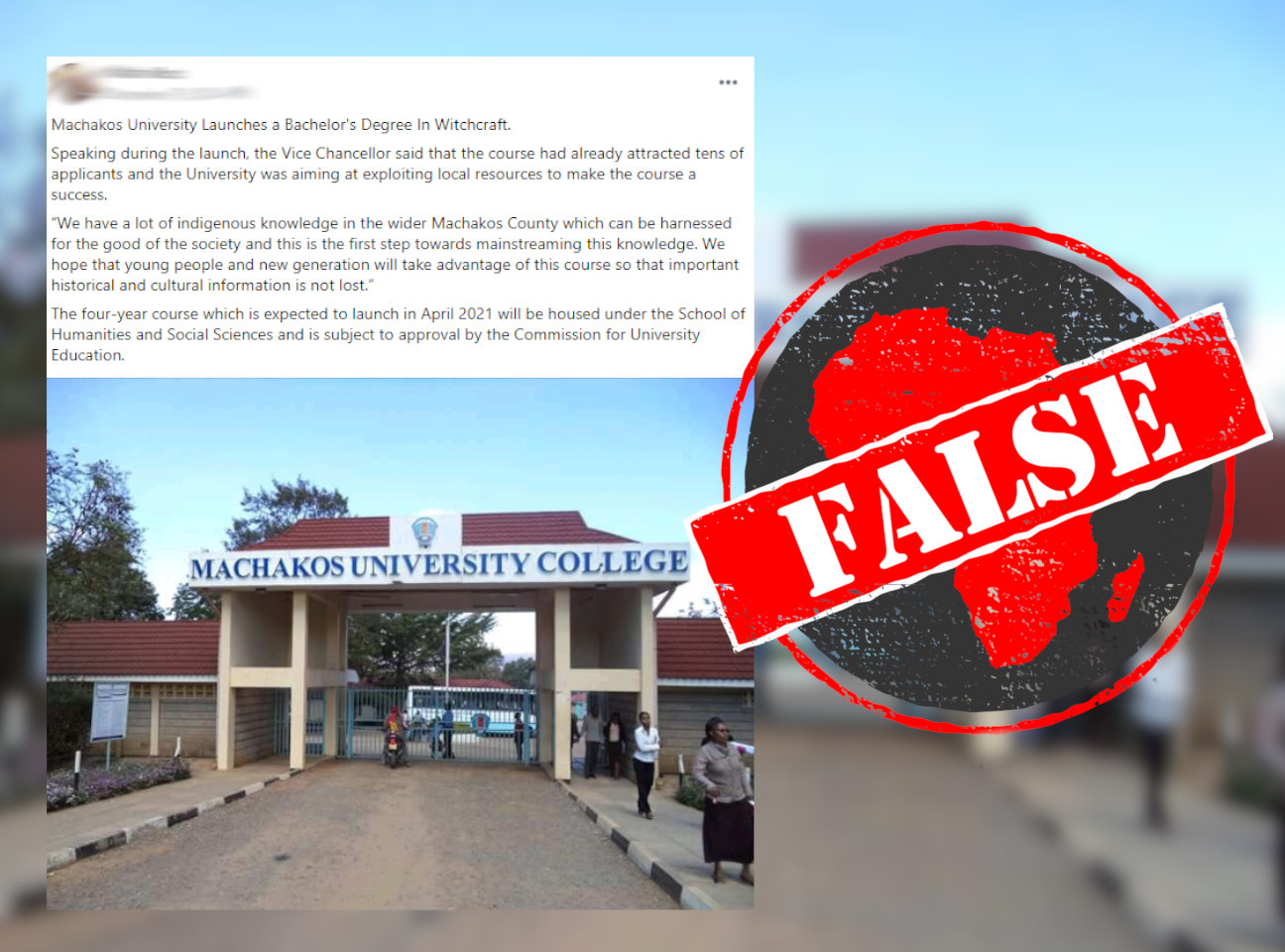“Machakos University Launches a Bachelor's Degree In Witchcraft,” reads a message posted on the Kenya-based Facebook page “Habari Moto” in December 2020.
“Speaking during the launch, the Vice Chancellor said that the course had already attracted tens of applicants and the University was aiming at exploiting local resources to make the course a success.”
Machakos University, formerly Machakos University College, is a public university southeast of Nairobi in Kenya’s Machakos county.
The message was also posted on the “Real News Zambia” Facebook page in January 2021.
Africa Check looked for an official announcement of the course on the university’s website, but found nothing. And it’s not listed among Machakos University’s courses.
We kept digging.

‘Viagra as low as $0.65’
On 19 December 2020 Machakos University posted a screenshot of the message on its official Facebook page, stamped “FAKE”.
“Be careful,” the university wrote.
The witchcraft course does not exist. But where did the claim come from?
It’s engagement bait. The Facebook page “Habari Moto” describes itself as a “media/news company”, but its only aim is to direct users to a dodgy website.
The page’s website is given as habarimoto.co.ke. But if you click the link, it redirects to a completely different page – curativeaiddeal.com. This website advertises cut-price drugs. The current bestseller is “Viagra as low as $0.65”.
And “Real News Zambia” is also dodgy. It also describes itself as a “media/news company”, but has no links to any credible media organisation. The only contact information is a Gmail address, and the page is managed by two people in Zambia.
Republish our content for free
For publishers: what to do if your post is rated false
A fact-checker has rated your Facebook or Instagram post as “false”, “altered”, “partly false” or “missing context”. This could have serious consequences. What do you do?
Click on our guide for the steps you should follow.
Publishers guideAfrica Check teams up with Facebook
Africa Check is a partner in Meta's third-party fact-checking programme to help stop the spread of false information on social media.
The content we rate as “false” will be downgraded on Facebook and Instagram. This means fewer people will see it.
You can also help identify false information on Facebook. This guide explains how.


Add new comment